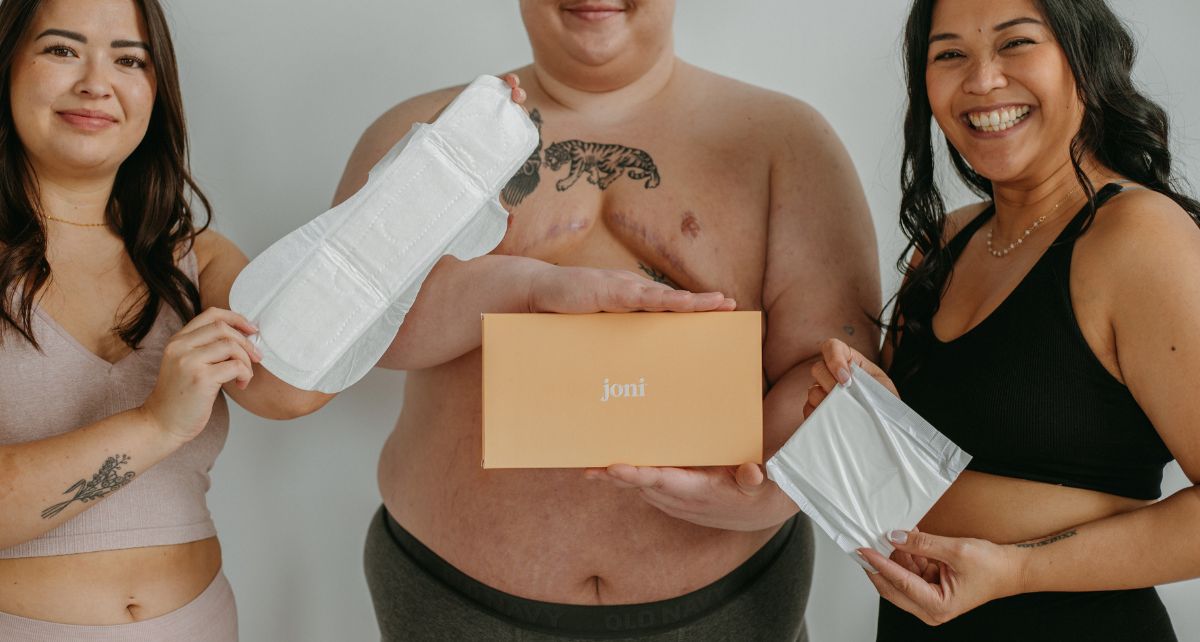
There’s a shift happening in the period space. You may see terms like “menstruators”, “people with periods”, and “period care products” being used more often. These shifts are happening for the same reason many feminists have pushed to change gender-biased language like postman to postal-person, and fireman to firefighter.
A woman is more than her anatomy
The reality is that not all women have periods, and not everyone with a period is a woman. Many women do not have periods such as AMAB (assigned male at birth) transgender women, women who have had hysterectomies, and women with conditions that mean they have lost their period. It can be ostracizing to these women to imply that menstruation is synonymous with womanhood, when in fact you are a real woman regardless of whether you menstruate or not.
Reducing a woman to her biology is not only misogynistic but goes against everything feminists have worked so hard for. A woman is so much more than just her anatomy and biological functions.
There's a broad spectrum of those who menstruate
It’s also important to consider the broad spectrum of people who do menstruate other than only cis-gender (those born a female) women such as intersex people, non-binary folks, and AFAB (assigned female at birth) transgender men.
The monthly occurrence of menstruation for men with periods can be triggering in itself for those with gender dysphoria (which can be detrimental to mental health). Adding the layer of gender-isolating language such as “feminine hygiene” and “women” when referring to periods further negatively impacts the queer community’s health. A study found that 23% of transgender people don’t seek medical treatment when necessary for fear of being misgendered/mistreated for being trans (1). With 1 in 200 adults being transgender, there’s a large sector of our communities who must make the difficult decision to miss critical medical care over the possibility of being misgendered/mistreated. (2).

Menstruation is a biological function
As we’ve grown with science it’s easy to conclude menstruation is a biological function, not a gender-oriented function, and it’s important to make the menstrual space accessible to everyone. Every person who menstruates deserves access to period education, reproductive care, and managing their cycle while feeling safe.
Making the world a safer place
Adopting gender-neutral inclusive language is a simple way for each and every one of us to make the world a safer place. That isn’t to say these switches in language come easy; it can feel very foreign and awkward at first to say people with periods instead of assumptive language like women in reference to menstruation.
It takes time to adapt to the change in language, but it’s important to remember everyone makes mistakes along the way. The intention to shift your language toward more inclusivity is an incredible step to take, and it’s okay to slip up, correct yourself, and keep moving forward.
Nobody is going to be perfect 100% of the time, just as with any other language changes you’ve made in the past. There is so much power in our words that we choose, and if making small changes to those words we use every day can make others feel safe and included, why wouldn’t we want to make that switch?
Resources
- James SE, Herman JL, Rankin S, et al. The Report of the 2015 U.S. Transgender Survey. Washington, DC: National Center for Transgender Equality, 2016
- 2. Scheim AI, Bauer GR. Sex and Gender Diversity Among Transgender Persons in Ontario, Canada: Results From a Respondent-Driven Sampling Survey. The Journal of Sex Research 2015; 52(1): 1-14.
About the Author
Victoria Alexander (she/they) is the face behind The Elephant in the Womb, a space centred around reproductive health education and menstruality. Victoria strives to further stand up for inclusive menstrual equity and actively works with local government to achieve LGBTQ+ centred period and pregnancy care options. Read Victoria's full bio here.

